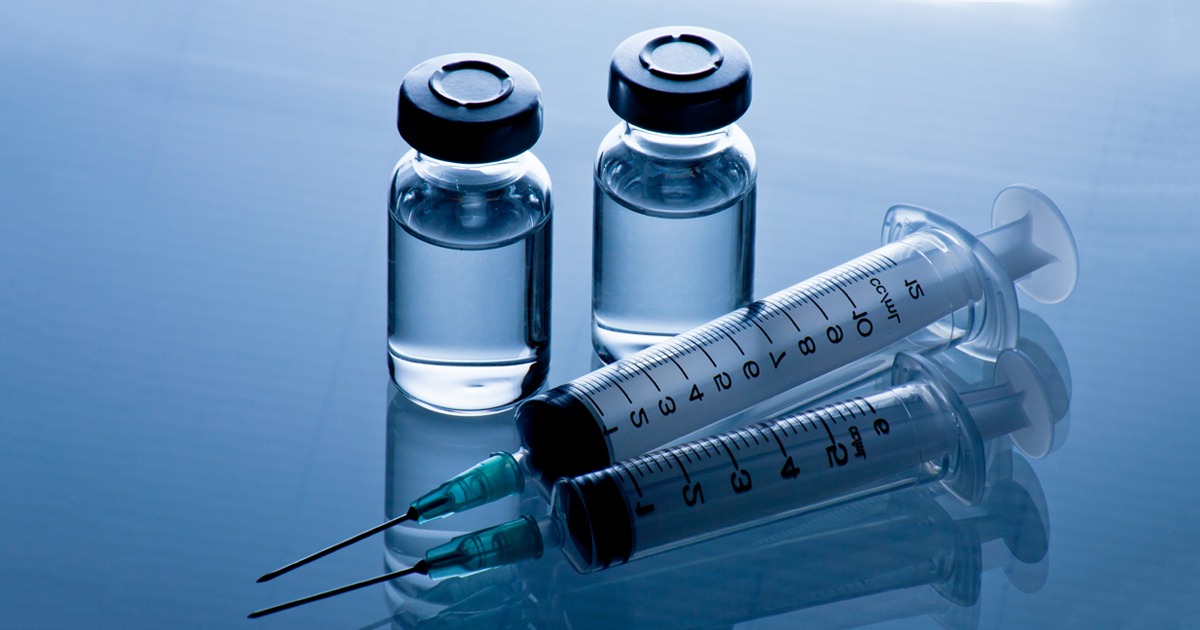The National Agency for Food and Drug Administration and Control, (NAFDAC) has approved the use of Gardasil vaccine as a single dose in the routine immunization against Cervical Cancer.
This was disclosed in a joint statement issued by NAFDAC Director General, Prof. Mojisola Adeyeye, and the National Primary Health Care Development Agency (NPHCDA) on Tuesday, 17 October 2023.
Join our WhatsApp ChannelAccording to the NAFDAC DG, “Cervical Cancer is a major public health problem in Africa, where it is the leading cause of cancer death among women.” It quoted the World Health Organization, which stated that about 119,000 new cases and 81,000 deaths from cervical cancer occurred in Africa in 2020, accounting for 22.5% of the global burden. It said d that Nigeria being the most populous country in Africa, “has one of the highest cervical cancer incidence and mortality rates in the continent, with an estimated 15,000 new cases and 10,000 deaths annually.”
READ ALSO: Nigeria Can Begin Vaccines Production To Tackle Cancer, Other Diseases – Ali Pate
Factors that contribute to the spread of the disease in Nigeria, according to the agency, include, low awareness, poor screening coverages, limited access to treatment and the major one being the Human Papillomavirus (HPV) infection, which is the most common infection of the female reproductive tract.
The virus is majorly caused by a DNA virus belonging to the family Papillomaviridae and the virions are non-enveloped and contain a double-stranded DNA genome.
It is important to note that the virus does not only affect women, but also men and one of the major range of conditions it causes in both genders is pre-cancerous lesions that may lead to cancer.
READ ALSO: FG To Introduce HPV Vaccines In September To Prevent Cervical Cancer
And, one of the most sustainable and effective ways NAFDAC had discovered as a means of preventing and controlling the growth of the Cervical Cancer in the country and other African countries, is the use of the Gardasil vaccine.
According to the agency, “Gardasil is a vaccine that protects against human papillomavirus (HPV), a common sexually transmitted infection that can cause cervical, vaginal, vulvar, and other cancers.
“Gardasil is recommended for girls and boys aged 11 to 12 years, but it can be given as early as 9 years or as late as 26 years. The vaccine is given as two or three doses, depending on the age of the person receiving it.”
Prof. Mojisola said the agency had after rigorous regulatory evaluation process, approved and granted the registration of the vaccine as a prevention measure against the cancer. Having done this, the Agency has exercised its mandate as stipulated by its enabling law, NAFDAC Act CapN1, LFN 2004 and after rigorous regulatory evaluation process for the vaccine, approved it for use.
How to Use the Vaccine
On the direction on use of the vaccine for its purpose, the Director General disclosed that, “Data from immunogenicity trials, post-hoc analyses of efficacy trials, and post-licensure observational studies among females have demonstrated that a single dose of HPV vaccine is sufficient to elicit an immune response that provides similar protection as a multidose regimen against initial and persistent HPV infection.”
Furthermore, “At 18 months post vaccination, the efficacy of a single dose of HPV vaccine against incident persistent high-risk (HPV16/18) infection was 97.5% (95% CI 82–100) for the nonvalent vaccine and 97.5% (95% CI 82–100) for the bivalent vaccine.”
He also noted that current evidences suggested that a single dose of the vaccine has comparable efficacy and duration of protection as a 2-dose schedule and may offer programme advantages, which was more efficient and affordable, and contributed to improved coverage.
NAFDAC said NPHCDA will therefore, begin introduction of the off-label use of the quadrivalent Gardasil vaccine as a single dose by the (NPHCDA) as a routine immunization in the country in the last quarter of 2023, as scientific evidences had shown that a single dose of the vaccine is enough to provide “solid protection against cervical cancer caused by human papillomaviruses (HPVs)”.
She added that NAFDAC supports the decision of the NPHCDA alongside the World Health Organization (WHO) Strategic Advisory Group of Experts on Immunization (SAGE) who had recently updated its recommendations on HPV vaccination schedule and had also advised that the single dose schedule could also be used for girls within the range of 9-14 years and young women within the range of 15-20 years, instead of the earlier prescribed two or three-dose schedules.
Health Benefits of Gardasil Vaccine
Some of the health benefits of the single dose Schedule of the vaccine, as contained in the statement is the fact that it reduces the cost and logistical challenges of delivering multiple doses, especially in resource-limited settings and it increases the coverage and equity of HPV vaccination, so that more girls and women can access the vaccine.
The vaccine also accelerates the elimination of the cancer as a public health problem and as part of the global strategy launched by WHO in 2020.
However, the DG also said that “Global cost-effectiveness analysis suggests that vaccinating pre-adolescent girls is usually cost-effective for cervical cancer prevention, particularly in resource constrained settings where screening and other cervical cancer prevention and control measures often have limited coverage.”
Conclusively, the Director General said NAFDAC is committed to ensuring the safety, quality and efficacy of the Gardasil vaccine, and woul continue to monitor its impact and performance in the country.
She also urged Nigerians to join hands with the agencies to drastically reduce or even eliminate the cancer completely in the country by taking advantage of the opportunity of th vaccine.


![Relishing Ugba [Oil Bean] Delicacy](https://www.primebusiness.africa/wp-content/uploads/2025/06/Ugba-delicacy-720x480.jpg)














Follow Us